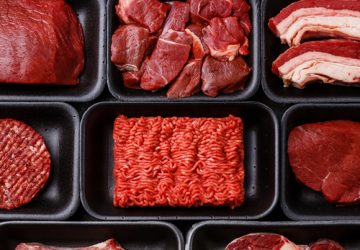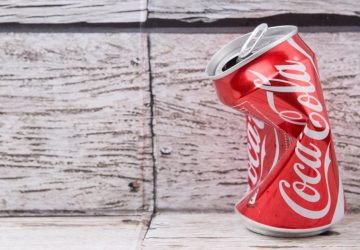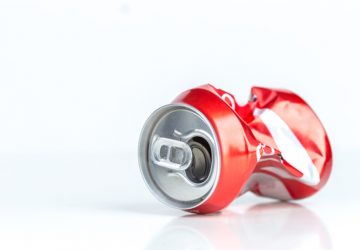 Last week, the Center for Science in the Public Interest (CSPI)—America’s leading self-proclaimed “food police”—turned 45. We’d send over a cake, but the stress from seeing so much sugar might give Michael Jacobson a heart attack. Instead, we’re taking a look at some of CSPI’s least successful past endeavors as it heads into bothersome middle age.
Last week, the Center for Science in the Public Interest (CSPI)—America’s leading self-proclaimed “food police”—turned 45. We’d send over a cake, but the stress from seeing so much sugar might give Michael Jacobson a heart attack. Instead, we’re taking a look at some of CSPI’s least successful past endeavors as it heads into bothersome middle age.
- Convincing American restaurants to use trans fats: Back in the 1980s, CSPI offered partially hydrogenated cooking oil—better known as the now-banned trans fats—as an alternative to animal fat. CSPI’s newsletter concluded, “All told, the charges against trans fat just don’t stand up.” An editor of the Journal of the American College of Nutrition laid considerable blame for adopting trans fats in the first place right on CSPI’s doorstep.
- Failed to replace the coffeehouse with the carrot-juice house: CSPI President Michael Jacobson—an opponent of drinking coffee (reportedly, he tried to remove the coffee machine from CSPI’s office, prompting about a third of his employees to threaten to quit)—once remarked, “They really should develop an alternative for people to socialize — a real fun coffeehouse. Maybe a carrot-juice house.” Well, the American people chose coffee: Roughly 80% of Americans drink it, and the U.S. has over 20,000 coffee shops according to market research company Mintel.
- Largely lost the war on salt: CSPI has petitioned the federal government to take table salt, which Jacobson called “the deadly white powder you already snort”—off the “Generally Recognized as Safe” ingredient list. (That’s the same fate that befell trans fats.) The Food and Drug Administration hasn’t taken CSPI’s advice, and new research that shows that a moderate amount of salt isn’t bad for you ought to convince the feds to deny CSPI’s hysterical claims outright. CSPI has also sued restaurants for using salt in their food, to similar non-effect.
- Flip-flopping on animal-based nutrient research: In 2012, CSPI threatened to sue Welch’s grape juice for justifying heart benefits from its juice using animal model research. However, CSPI’s own hyperbolic “Chemical Cuisine” attack reports on various commonly used ingredients often rely on animal model research.
- Wrong side of the saccharin science: After a CSPI-backed scare in the 1990s, the EPA and National Toxicology Program listed saccharin (an artificial sweetener) as a possible carcinogen. In recent years, both agencies have admitted they were wrong and de-listed saccharin from their respective lists; CSPI continues to claim the zero-calorie sugar substitute is harmful.
Ultimately, CSPI is driven by what Reason magazine columnist Jacob Sullum called an “anti-pleasure principle.” Anything that people enjoy is suspect like coffee, which has been touted for its health benefits in recent years. So unhappy birthday, CSPI—you’d want it that way.




